
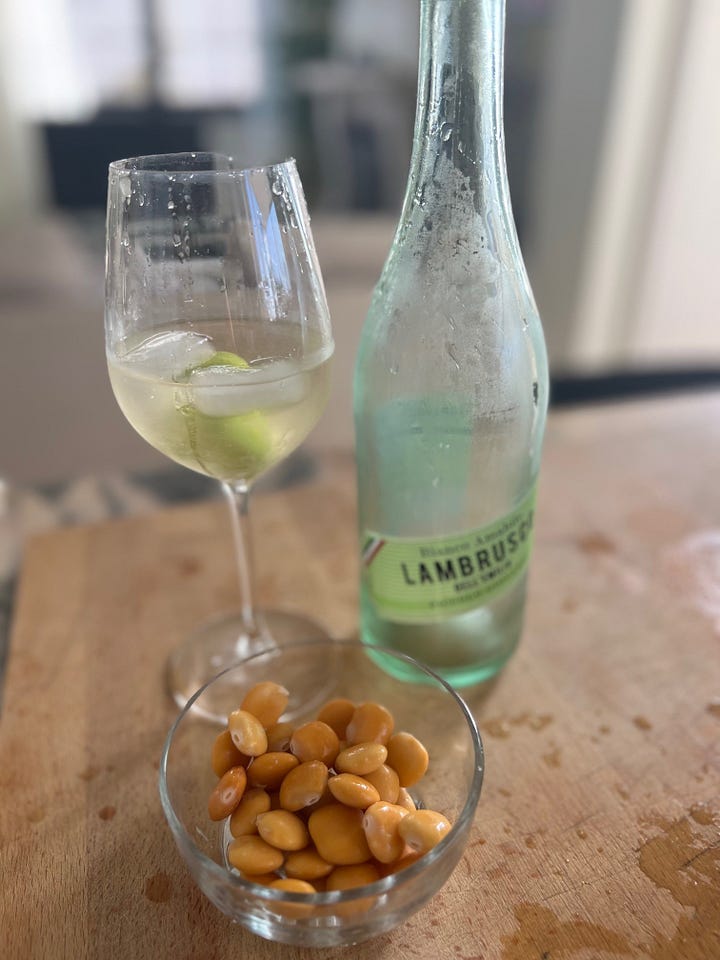
“You’re the one who wanted to live in Portugal,” J says with a wry smile, as he takes the dull knife from reluctant me and proceeds to chop the head off a chicken.
Fresh from a big grocery shop, I am ready to cook my first proper dinner. It’s raining hard on the Silver Coast, there is a chill in the air, and roast chicken seems like a homey meal. But we can’t figure out exactly how the oven works, so I’ve decided to avoid the risk of undercooked meat and riff on poule au pot instead. I’m feeling pretty proud of my ability to roll with things.
When I unwrap the chicken, which turns out to be a rooster, its red-combed head throws me for a loop. So do its feet, which are untethered and tucked into its cavity, I assume for the chef to have free creative rein. I am grateful there are no feathers to pluck.
I’m still high from the day, which began at the sports center in Caldas da Rainha, where the local pickleball club gathers several times a week. I’d found them months before via Facebook. They had invited us to drop in and play, but their welcome has exceeded my expectations. At home, playing pickleball with strangers can be weird and intense — I’ve likened showing up at a new court to being a new arrival at a youth hostel, sussing out the personality quirks of the other travelers, hoping for acceptance. Someone else said pickleball reminds her of speed dating.
In Caldas, we are immediately ushered into a democratic, convivial scene, where all levels and nationalities (I counted at least six different ones) play together with ease. In between games, I chat with the expats on the bench, learning where they are from, how long they’ve been here, where they live.


Afterwards over beer and lupin beans (tremocos in Portuguese) we get to know one another. French is the lingua franca here and I am in heaven.
If you know me or have read my book, you know that my expat life began as a student in France during a time when America dominated the world stage. I witnessed pivotal events through the eyes of other nationalities and it completely changed my perspective. What followed was a life of international exploration, cut short when I settled in Seattle to raise a family. At the Associacao Cultural Desportiva e Recreativa Arneirense, sharing post-pickleball refreshments and conversation with my new friends, I feel my world and my perspective opening up again.
Speaking French is like riding a bike for me. I learned it young, had an immersive experience living with a French family and attending a french lycee and, later, university. When I was a diplomat, I traveled to Nepal and Kashmir with French friends, and even cavorted with Belgians. So when Mario (Franco-Portuguese, married to Marilou (Swiss-Portuguese) tells me he is “un citoyen du monde”and shares his philosophie with me, I am in heaven. Long-forgotten vocabulary returns and I reflexively make those cool French noises of affirmation.
We leave having made a lunch date for the next day with new friends and receiving a coveted invitation to the pickleball club picnic the day after that. We’re already scheduled for an expat morning meetup at a cafe, arranged through a different Facebook group. Our dance card is filling up and we haven’t even scratched the surface. We’ve heard about bowling and volleyball and a Friday night party next week at a local bar. The generosity of spirit here is infectious.
On a rainy Tuesday morning in Nazare, we meet up with a group of Americans in various stages of settling here. The veteran expat women remind me of the PTA moms who help your family adjust to a new school, with overlays of the Foreign Service CLOs (community liaison officers), almost always wives, who could direct you to the best places to shop and how to get a local drivers license and find reliable household help. It’s universal. Women are like New York taxi drivers. Stick with them to efficiently get where you need to go.
I’ve been wondering with some trepidation if retirement overseas is all play and exploration — kind of like being a toddler, minus the tantrums. At home, I know retirees deeply involved in community service, but how do you get meaningfully involved in a country that’s not your own? Not to worry. The veteran expat women have started a volunteer group. It’s one of the ways they stay connected to each other and engage in their new community. I hear about friendships with Portuguese people that seem more than superficial — taking trips together, taking care of each other.
The US surgeon general recently released an 85-page report on the loneliness epidemic in our country, calling for social connection as a means to alleviate isolation. Our individual way of life makes this particularly hard for the elderly. Warned by the cautionary tale of friends’ parents, I understand the importance of finding your landing place while you are still young enough to be active and build community. I see a hunger for this type of engagement in my own neighborhood. There’s an activity (usually organized by women) almost every night at our local Elks club. Someone in our neighborhood Facebook group is trying to pull together a group to play Mexican train dominoes.
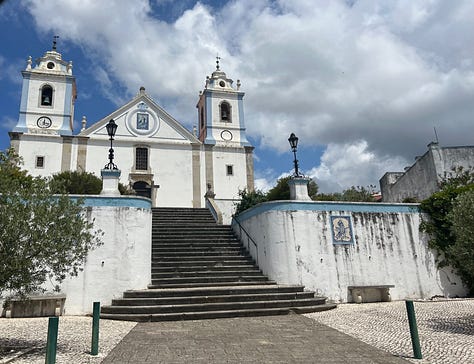
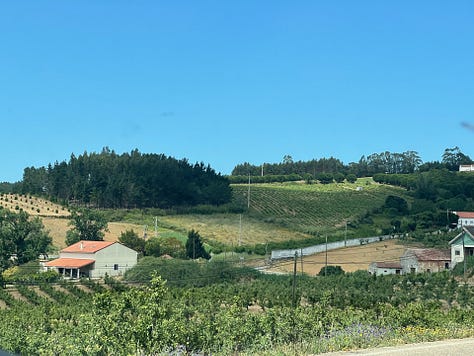
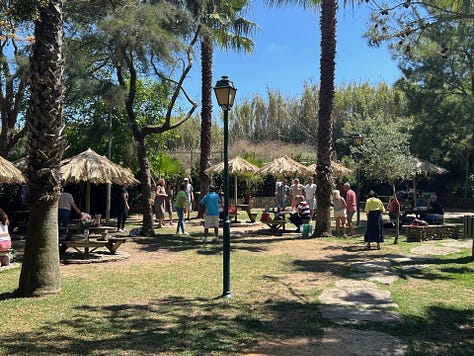
The vinho branco flows freely at the Parque da Fonta Lima, a beautiful park south of Peniche where the pickleball club has gathered. Within minutes we are talking about relationships and spirituality, restoring someone’s ancestral Portuguese home, shopping for appliances, and later about restaurants and Salir de Matos, a small parish community where you can purchase fresh bread baked in wooden ovens. As we visit each other’s tables with food to share, a French woman looks dubiously at the quinoa salad I offer her. I convince her to try it and in the spirit of community she does. “C’est bon!” she proclaims and we both smile.
Music begins to play and before you know it, people are dancing the Macarena, something I haven’t seen for 30 years. Some men set up Kubb, a Swedish lawn game, and I can hear the players laughing from across the park, where I am petting a new friend’s dog.
As J and I envision our retirement, we talk about all of the places we have yet to explore in the world and it’s easy to feel the tug of novelty. But as the pickleball club members bid each other goodbye, but only till Saturday when they’ll be back on the courts, I feel the tug of community.

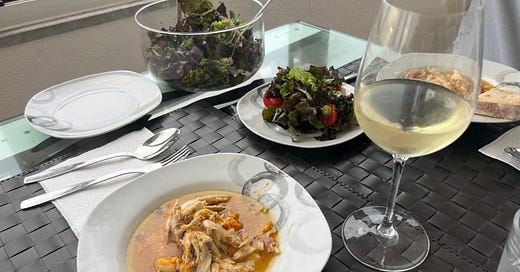



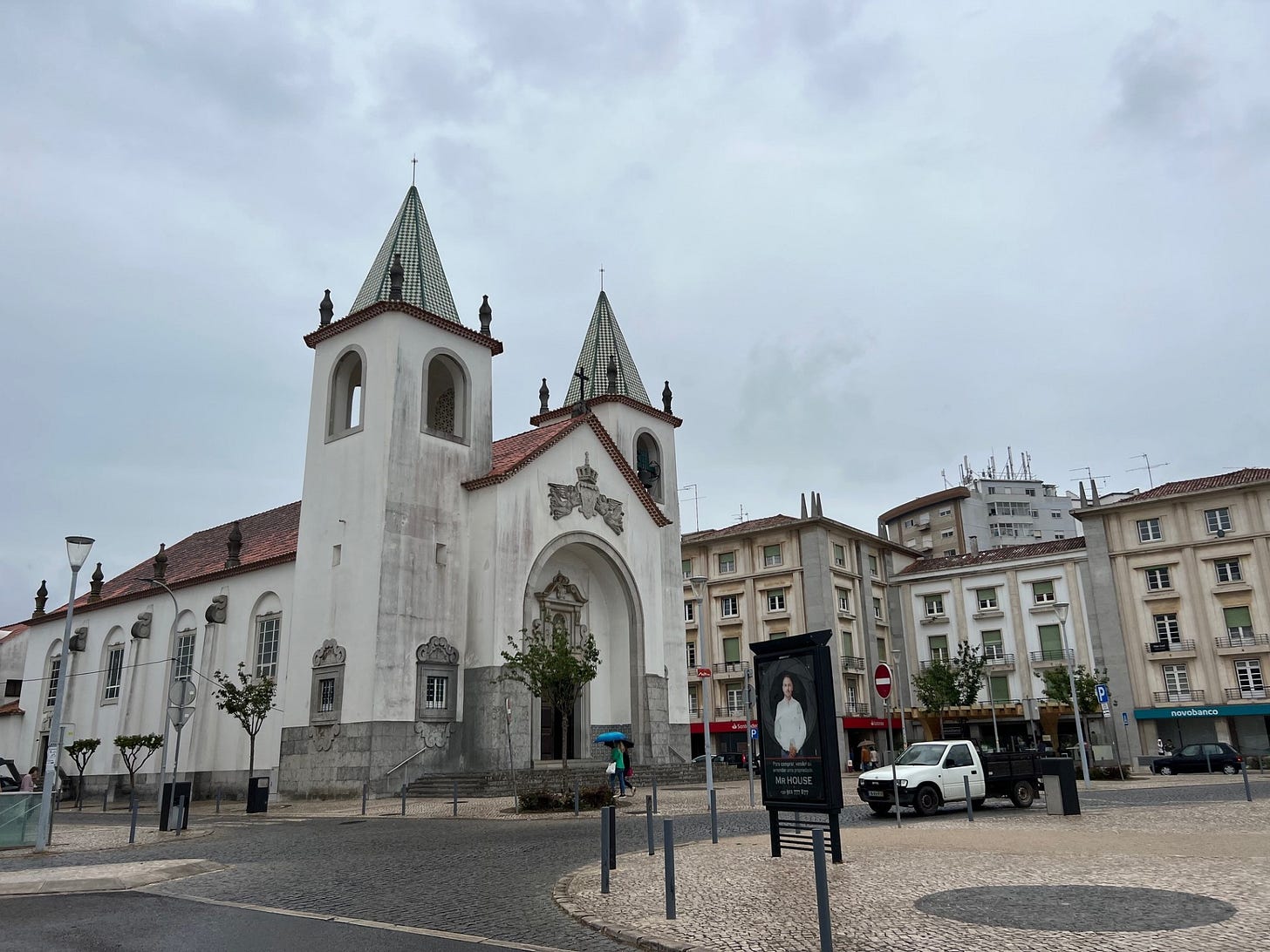
This is wonderful, and also thanks for solving the mystery of what the little blocks of wood that I saw in the park in Uppsala this afternoon are!
It’s like you just stepped into a very comfortable pair of slippers. Your life there sounds like it suits you so well. Saying “yes” pays off in growing your circle.